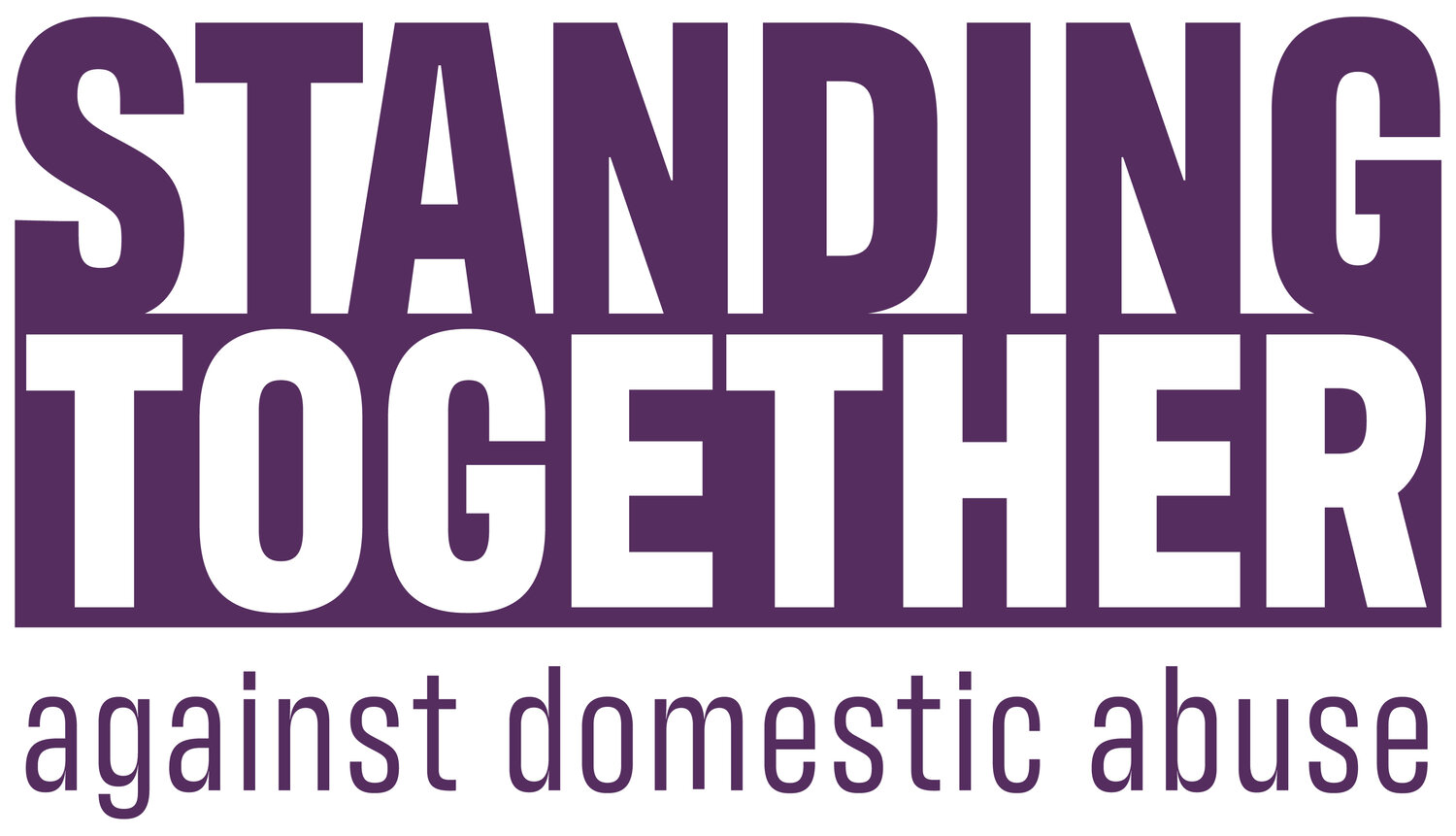The Project:
Standing Together and Macmillan Cancer Support want to improve services and support for people who have been affected by both cancer and domestic abuse.
Since 2021 there have been three phases of the Macmillan Domestic Abuse and cancer project.
In Phase 1, Dr Sandi Dheensa from Bristol University led a consultation with victim-survivors and the cancer workforce in order to lay the groundwork for understanding the issue.
In Phase 2- Domestic Abuse Coordinators were co-located at The Royal Marsden & University Hospitals Bristol & Weston for 12 months. In this time we delivered domestic abuse & cancer training to over 1,000 staff. As well as advising on referral pathways and reviewing trust policies. Within this timeframe, we held 4 national working groups to bring experts in cancer and domestic abuse together to share our learning.
In Phase 3- the team are developing a toolkit to support clinical staff to identify & respond to domestic abuse in a cancer setting. The toolkit will be designed with the support of people who are expert by experience, national workshop group meetings, focus groups with staff and drawing from the learning from phase 1&2.
Publications :
This is the cancer and domestic abuse toolkit for professionals, launched in partnership with Macmillan and the University of Bristol. It provides knowledge about the signs and symptoms of domestic abuse, encouraging trusts to have a toolkit supporting frontline staff to learn about an issue and identify approaches for addressing them. Please, click here to access the file.
Report:
To download the report, please complete the short form below. The report will automatically load when you press ‘submit’.
Webinar Recording:
To watch this recording, please complete the short form below. The video will automatically load when you press ‘submit’.
Macmillan Support Line:
Macmillan Support Line:
From Macmillan website:
We know cancer throws a lot your way, and right now, the coronavirus pandemic is making it even tougher. If you're worried about something and you need to talk to someone, whatever is on your mind, we're here to listen. There is no problem too big or small. On this page, you will find information about the different people you can speak to and how to get in touch.
Support for Domestic Abuse:
Below is some general information about some support options available for victims/survivors of domestic abuse. If you are experiencing domestic abuse, you are not alone. There are dedicated services to offer help and support.
If you are in immediate danger:
***Please contact 999***
Silent solutions:
If you need to contact 999, but cannot speak freely:
IDVA Support:
IDVA stands for Independent Domestic Violence Adviser. IDVAs provide support to improve the safety and wellbeing of people who are victim/survivors of domestic abuse. IDVA support is tailored to the needs and wishes of the person they are working with. Some examples of support they can provide includes:
Discussions around the risks and impact of domestic abuse.
Help making a personal safety plan.
Information about:
*Housing options * Civil remedies Criminal justice processes * Emotional support options * Further local support services *
Advocacy and support to link in with other services you are working with.
Every area of England and Wales has an IDVA service (or equivalent). If you want to find your local IDVA service, you can contact:
National Domestic Violence Helpline:
0808 2000 247 (24 hours)
Webchat - https://www.nationaldahelpline.org.uk/en/Chat-to-us-online (Mon-Fri, 10:00 – 18:00)
Support in BSL - https://www.nationaldahelpline.org.uk/en/bsl (Mon-Fri, 10:00 – 18:00)
Service directory:
National Helplines:
There are a variety of national helplines to support victim/survivors of domestic abuse. They can help you find services in your local area that can provide you with longer term support. Helplines can provide information about:
*Safety planning * Housing options * Civil remedies * Criminal justice processes * Emotional support options *
National Domestic Violence Helpline:
0808 2000 247 (24 hours)
Webchat - https://www.nationaldahelpline.org.uk/en/Chat-to-us-online (Mon-Fri, 10:00 – 18:00)
Support in BSL - https://www.nationaldahelpline.org.uk/en/bsl (Mon-Fri, 10:00 – 18:00)
(Welsh Language) Live Fear Free Helpline:
0808 80 10 800 (24 hours)
Welsh Language Helpline - website - https://www.welshwomensaid.org.uk/what-we-do/live-fear-free-helpline/
Sign Health Crisis Helpline:
Text DEAF to 85258 (24hours)
More information: https://signhealth.org.uk/with-deaf-people/crisis-text-service/
National LGBT+ Domestic Abuse Helpline:
0800 999 5428 (Mon - Fri, 10 am – 5 pm, with extended hours on Wed and Thu 10 am – 8 pm)
Men’s Advice Line:
0808 801 0327 (Mon - Fri, 9 am – 8 pm)
Karma Nirvana for help with 'honour'-based abuse:
0800 5999 247 (Mon - Fri, 9 am - 5 pm)
If you are hurting someone close to you, or are concerned about someone else who is doing so, the following service can help:
Respect Helpline:
0808 802 4040 (Mon - Fri, 9 am – 8 pm)
Safety Planning:
If the actions of a partner, ex-partner or family member are a making you unsafe, it is important to have a plan in place of how you would respond if you felt in danger, so you do not have to think about this on the spot. A safety plan will look different for everyone. An IDVA (described above) can help you create a safety plan that is unique to your needs.
Some general information on safety planning can be found here - https://www.womensaid.org.uk/the-survivors-handbook/making-a-safety-plan/
Further Information and Resources:
· For further detail on specialist support and services: https://www.breathingspace-ava.org.uk/
· For information about legal options: https://rightsofwomen.org.uk/



